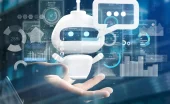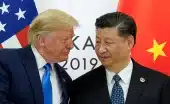Johannah Bernstein post: "eternally proud of my father’s extraordinary aeronautical engineering. legacy. here is a photo of the Canadair Water…
Global economy November 2025-
Written by Diana Thebaud Nicholson // November 18, 2025 // Global economy, Government & Governance // No comments
18 November
The AI Bubble’s Shaky Math
Carl Benedikt Frey
(Project Syndicate) Today’s massive and still-growing investments in AI and its accompanying infrastructure could well pay off like the internet did, following the investment boom of the late 1990s. But, for now, the gains from AI look more muted, and the macro downsides larger, than in the case of the dot-com bubble.
When OpenAI recently committed $1.4 trillion to securing future computing capacity, it was merely the latest indication of irrational exuberance in 2025. By some estimates, US GDP growth in the first half of this year came almost entirely from data centers, prompting a flood of commentary about when the bubble will burst and what it may leave behind.
It is tempting to think that large language models (LLMs) will speed up innovation and discovery itself, such as by surfacing hidden links in the academic literature, writing code, and drafting protocols. New tools – from Robert Hooke’s microscope to Galileo’s telescope – have sparked such leaps before. This time, however, we have already had the ultimate research tool in the form of the internet-connected PC. Yet even with instant access to the world’s accumulated knowledge and top talent, measures of research productivity and breakthrough innovation have declined. Keeping alive Moore’s Law – the observation that computer processing power doubles every two years – now takes orders of magnitude more researchers than it did in the early 1970s.
Sorkin: A financial crisis is coming and CEOs are scared to speak out
New York Times financial columnist Andrew Ross Sorkin warns that many of today’s top business leaders see economic trouble ahead for global markets—but aren’t willing to talk about it publicly.
… “They’ll talk to you privately, absolutely. But publicly, unless they’re going to be in praise of what’s ever happening in Washington… they are not willing to raise their hand and say, ‘this is a problem.”
Sorkin points to fear—both political and reputational—as a key reason why tech and financial leaders stay silent. “If I raise my hand now, I may not have a hand,” he says. “Should I raise it now? Should I raise it later? And will there be a later?”
As economic uncertainty grows, he questions whether the public can count on the private sector to lead. “If we ever get to a moment where there is a crisis… are there going to be leaders willing to stand up and explain what needs to happen?”
Andrew Ross Sorkin on What 1929 Teaches Us About 2025
The financial journalist discusses his new book about the Wall Street crash of 1929, and the mounting concerns about an A.I. bubble.
He tells David Remnick that the concern lies in the immense borrowing to build the infrastructure for a future A.I. economy, without the sufficient revenue, currently, to pay off the loans. “If I learned anything from covering 1929, [and] covering 2008, it is leverage,” Sorkin says, “people borrowing to make all of this happen. And right now we are beginning to see a remarkable period of borrowing to make the economics of A.I. work.”
17 November
Trump’s tariffs hit the global economy
Courtenay Brown
(Axios) There is new evidence of global pain stemming from President Trump’s trade policy, which single-handedly scrambled the world economy.
From China to Switzerland, the economic readjustment to double-digit tariffs has been bumpy. Even with trade deals, the levies imposed on their goods are still well above pre-Trump norms.
Unlike the U.S., most countries do not have an AI investment boom picking up the slack.
Driving the news: Japan’s economy shrank by almost 2% on an annualized basis in the third quarter, the first time activity contracted in more than a year. Switzerland’s GDP in the same period fell by 0.5%, the first quarterly drop since 2023.
A slowdown in exports to the critical U.S. market was a key drag on the respective economies, as tariffs weighed on demand for their goods.
In Japan, shipments of autos plunged after a pickup earlier in the year as many sought to get ahead of tariffs — even as a U.S.-Japan trade deal in July slashed tariffs from 25% to 15%.
Switzerland’s U.S. exports of watches, chocolate and more plummeted as the near-40% tariff rate imposed by Trump in August took effect.
The big picture: That data, released overnight, follows a string of bleak economic readings in China that show the economy is on weaker footing than previously known — even as it ramped up trade tensions with the U.S.
14 November
Something Feels Different About the Economy
Human brains were not meant to think about trillions of dollars.
By Gilad Edelman
(The Atlantic) Numbers are too big now. Just before Halloween, Nvidia made headlines for becoming the first $5 trillion company in history. A week later, Tesla’s shareholders approved a pay package for Elon Musk that could be worth about $1 trillion in a decade. At a certain point, figures this large become uncomfortably meaningless.
…the stock market…has been on an outrageous tear, with the gains concentrated among a tiny number of unfathomably valuable companies. The S&P 500 has doubled since October 2022, which is impressive on its own, but the combined market cap of the Magnificent Seven—Alphabet, Amazon, Apple, Meta, Microsoft, Nvidia, and Tesla—has more than quadrupled. These firms are all heavily invested in generative AI, a technology based on training computers to make connections among quantities of data that are completely beyond human understanding. Large numbers are generating large numbers.



